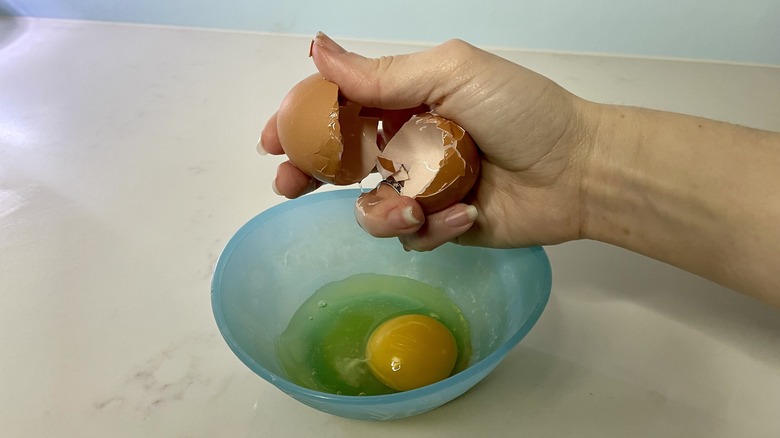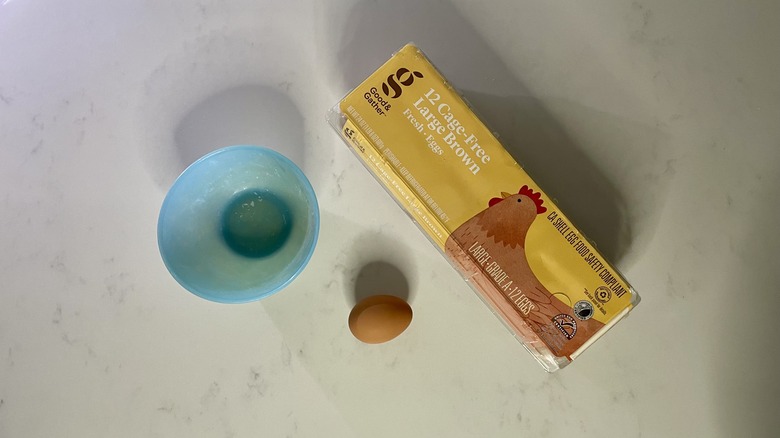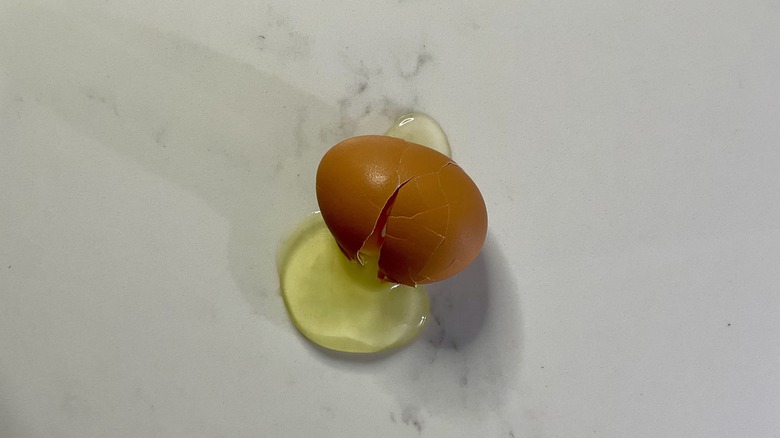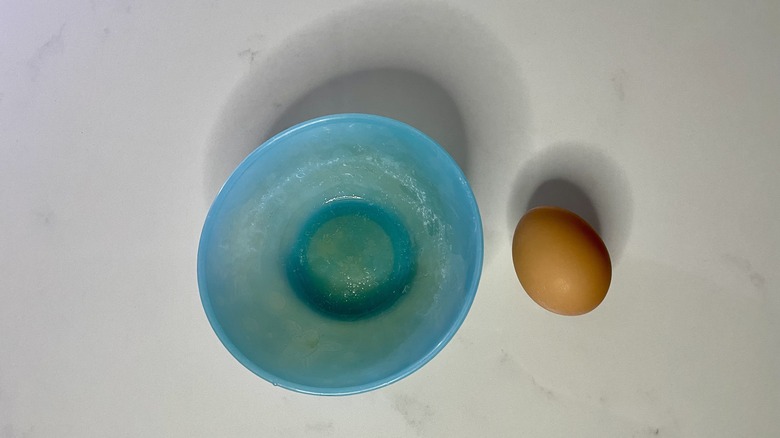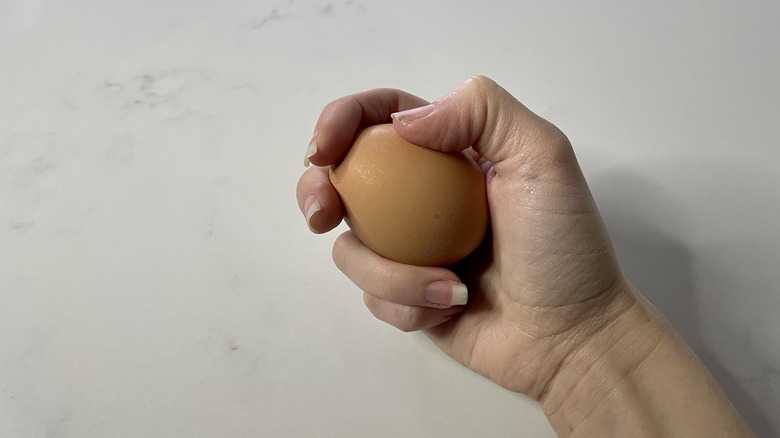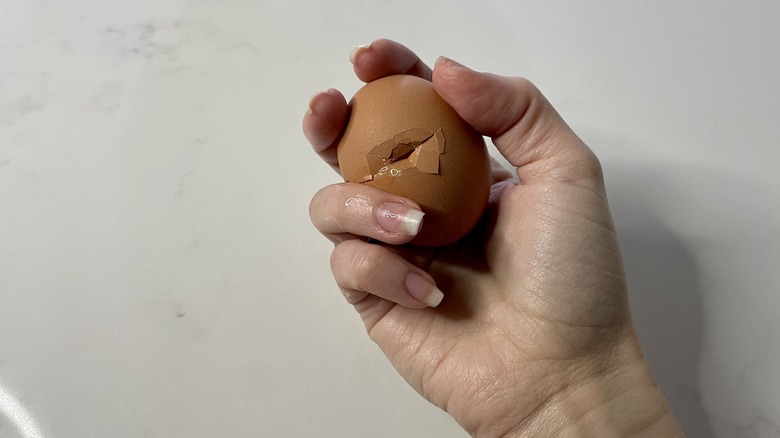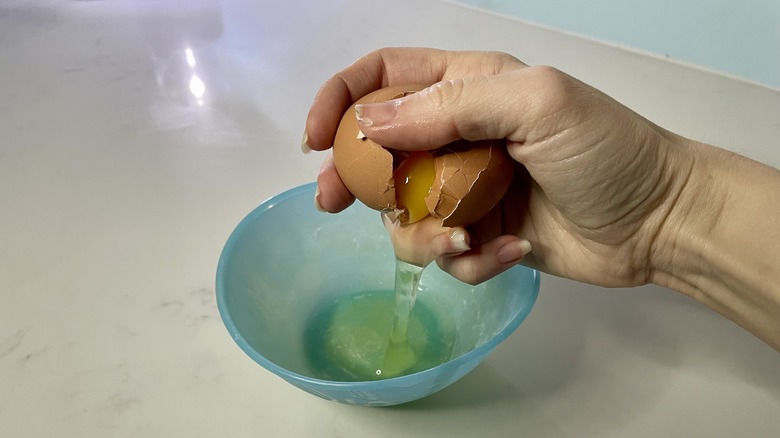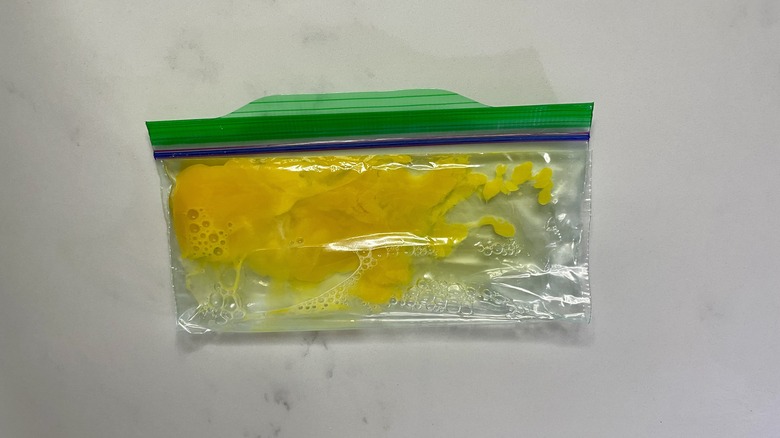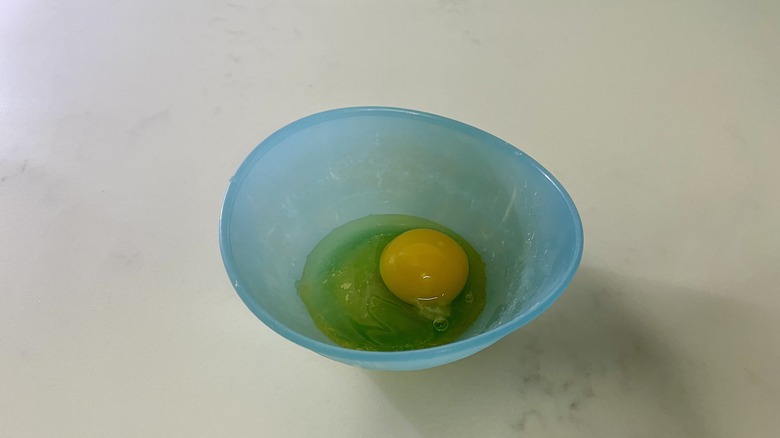How To Crack An Egg With One Hand And Impress Everyone You Know
Few kitchen skills are as simple yet elusive as cracking open an egg with one hand. Most people see the skill as a magic trick, and even some professionals can't or don't do it. But master this skill, and you can impress your friends for years to come.
Cracking an egg with one hand takes time and practice but does not require any additional cooking skills. Aside from the ability to crack an egg, there are no precursors to learning to open one up single-handedly. You can learn this skill even if you are just a casual cook. That being said, it can be more challenging for those with hand pain or mobility issues such as arthritis. This is also a skill that will take time to get just right; you will likely break a few eggs in the process. Learning the correct pressure to use at each step of the process is the biggest hurdle, and that is something that can only be accomplished through practice. This guide takes you through that process, one step at a time.
The tools you will need
The good news is you do not need many tools for this. You will need, first and foremost, an egg. Next, you will need your hand, preferably your dominant one. You will need a flat surface and a vessel to crack your egg into. As kitchen skills tasks go, this one has an incredibly low tool count.
Common mistakes when cracking eggs
The most common mistake when it comes to cracking an egg with one hand is either being too forceful or not forceful enough. You want to crack the egg hard enough to break the shell, but not so hard it starts seeping out before you have pulled the two halves apart. Similarly, you want to pull the two pieces of shell apart, not crunch them in your hand. To counter this possibility, many people will be too gentle, at which point the egg won't open at all, and you risk getting small pieces of shell in your mixture.
Finally, it is not advised to go straight to cracking an egg one-handed directly into your recipe or pan. While you are practicing, there is a pretty good chance of cracking off small pieces of shell. Practice cracking into a separate bowl first, then adding the egg to your recipe.
Prepare to crack
Clear a workspace, and prepare a vessel for your cracked egg. This can be a bowl or cup.
Grab your egg
Firmly but gently grasp the egg in your dominant hand, thumb on one long side of the egg, and the middle and pointer finger on the other. Bring the pinky and ring finger to the bottom of the egg, and press the bottom half against the palm.
Crack your egg
With the egg firmly in hand, quickly crack the egg on a flat surface or the edge of a bowl.
Seperate the egg
Hold the cracked egg over the prepared vessel. Use the thumb and middle finger to lift the top half of the egg away from the bottom half, which should remain firmly between the other fingers and the palm. This is almost a slight twisting motion. Use either your ring finger to help hold the bottom half of the shell and pull it down. If the egg has been properly cracked, you will be able to separate the two parts of the shell cleanly, and the egg whites and yolk will fall into the bowl.
How long do cracked eggs last?
Raw eggs outside the shell do not last as long as some might think. In the refrigerator, raw eggs only last about two days. These eggs should be stored in an airtight container.
If you have a bunch of cracked eggs from practicing and don't think you will eat all the eggs in two days, you can also freeze them. Once again, eggs should be stored in an airtight container. In the freezer, eggs can last up to a year. It should be noted that egg yolk texture changes when frozen, as it becomes thick and more solid.
Recipes worth cracking eggs for
If you are practicing cracking eggs with one hand, there is a good chance you now have a bunch of eggs that need to be used. Luckily, there are plenty of recipes to make that include eggs.
Scrambled eggs, or eggs of any style, are almost a given. But then there are recipes that include eggs, such as basic buttermilk pancakes. In addition, egg-based sauces — like a standard homemade aioli — and even seasonal drink recipes like ours for definitive eggnog present great opportunities to home your one-handed cracking skills.
